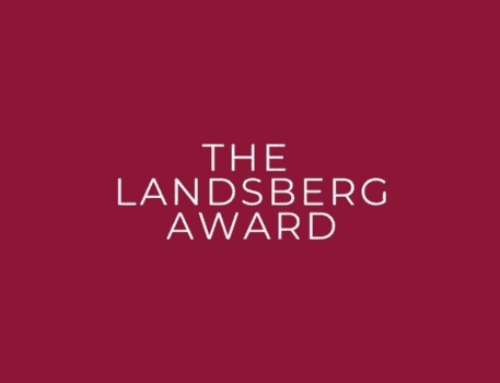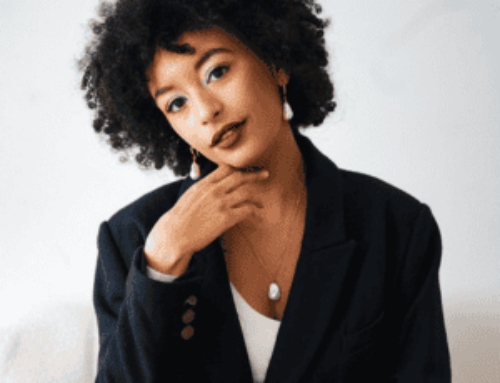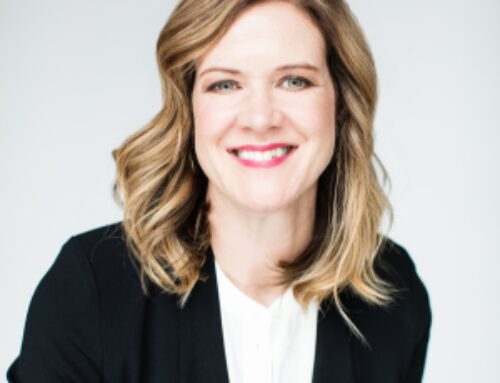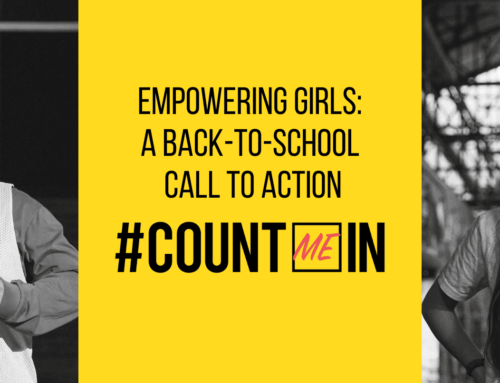
All kinds of amazing things, discovered Lorna Jones, an elementary-school teacher in Toronto.
Lorna has watched girls develop confidence, awareness, creativity, and connection through the As We Are T-shirt project, which she developed with the support of Canadian Women’s Foundation and The W. Garfield Weston Foundation.
In As We Are workshops, girls age 9 to 13 are encouraged to analyze the messages they see in both clothing and in the media. Then, they get to brainstorm together and design T-shirts bearing positive messages.
So far, close to 100 girls have attended the workshops, creating over 100 unique T-shirt designs. And the project continues to evolve.
An As We Are website is being created, so that the workshop materials will be available to anyone who wants to offer it in their own community. A selection of T-shirts designed by girls will also be sold to raise money for the Canadian Women’s Foundation’s girls’ programs.
In the following interview, Lorna explains how the project started and how she wants to see it go further—to create a global community of girls who are proud to celebrate their strengths.
How did the As We Are T-shirt project come about?
A couple of years ago, I had my students create “Grateful Journals”, which were powerful tools for self-reflection. Then we made T-shirts with the word “Grateful” on them. The students got to design the shirts themselves, using special ink, pens and stencils.
When the T-shirts were dry, a girl in my class named Yoyo came in and put her T-shirt on over her other shirt, and I’ll never forget that moment.
When she put it on, she held herself differently than she had before. I thought, “Look how empowered she is, she feels so proud about wearing this T-shirt that she’s designed herself.”
I thought about how so few T-shirts for girls have positive messages on them. I thought, “Wouldn’t it be great to get girls together to design their own T-shirts that contain positive messages so that they all feel proud, powerful and inspired?”
While I was trying to advance the project, someone I know approached the Weston Foundation, and they said they would like to help make it happen. I also got in touch with the Canadian Women’s Foundation and we formed a partnership with support from The W. Garfield Weston Foundation.
What was your goal for the project?
In my mind, there were two main goals.
The first was on a one-to-one level with the girls. Each girl would participate in a workshop that would help her recognize her own strengths, examine the messages in the media, and develop a message of her own. She would be able to celebrate herself by creating her own T-shirt, wearing it, and sharing her message proudly.
At this point, we don’t have a movement that celebrates girls and their potential. They receive messages saying they should be pretty and skinny, that they should be princesses. The sports and science motifs on T-shirts for girls are often adorned with hearts and flowers; that’s not something you see in boys’ designs.
If a girl wears a T-shirt that says “I’m going to change the world one day,” she’s going to start to believe in her potential, and people who read that message may treat her differently than someone who wears a limiting message. T-shirts with messages such as, “If you can be anything, just be a princess” do a disservice to girls. We need to create awareness about the damage these messages can do.
The second goal is to promote self-esteem and positive messages for youth globally. We want to welcome educators and community leaders to be part of the As We Are program and deliver it in schools and community centres. That’s why we’re making the workshop material available online for free, so that anyone in any province, or any country can download it.
We are also looking to connect with celebrities who are role models for girls, and ask them to wear the T-shirts that have been designed by girls in our workshops. We have chosen four from our first 100 designs. We feel these T-shirts offer inspiration and positive messages for girls everywhere.
Sometimes it takes a celebrity to help start a movement of change and get messages into the mainstream. It is my hope that the garment industry and media in general will take notice and start providing more appropriate messages for girls. It could be domino effect.
What happened in each As We Are workshop?
Each workshop began by explaining the goals of the program. Then we talked about female role models that we had, and the qualities that we recognize in those role models.
We examined whether we see those qualities in ourselves: there was time to think about “What am I good at? What am I proud of?” This was a great experience, because some girls didn’t feel confident in anything they did. But they had facilitators or other participants who helped them recognize their strengths. I really wanted to encourage a culture of sharing, inclusiveness, and celebration.
Then, we looked at messages that were in the media, and specifically on T-shirts, such as, “I’m too pretty to do homework, so my brother has to do it for me,” “Girls just want to wear diamonds,” or “Girls can play sports, TOO.”
The girls got to discuss the T-shirts: What aspects did they like? What was that message saying about girls? What would it say about you if you wore the T-shirt?
The girls were making observations like, “Why does everything they associate with girls have to be pink and have hearts? I like blue.”
Or, “I LOVE math, I’m, NOT allergic to algebra!”, or “I don’t need a hero to save me … I am my own hero!” One T-shirt said, “Eat Less” and many girls felt that put too much emphasis on body image and being skinny. They were determined to counteract these messages with messages of their own.
The girls were given markers and paper and encouraged to write down their thoughts or draw images throughout the process. The second part of the workshop was about designing their own T-shirts.
They did this on paper first, brainstorming different designs and working with artists and writers to help them realize their goals. Then they used iPads and an app called Sketchbook to make the designs. Before they left the workshop, they got to transfer their designs on to their own T-shirt, which they could take home.
They also got to make a “Video Selfie” which documented their feelings and ideas throughout the process. They couldn’t wait to put on their new T-shirts. The energy in the room was amazing.
How did you see the workshops influencing the participants?
I think one of the major things they took away was awareness. I think we gave them some tools to fend off the negative messages they feel every day, and empowered them so they don’t feel like they have to wear messages that others were wearing.
I had a mum come up to me and say, “My daughter is more aware now, not only when she looks at T-shirts and media, but when she listens to songs. She’s hearing how women are being portrayed, and she’s rejecting it and seeking messages that reflect her sensibilities.”
I also saw the impact in the girls’ T-shirt designs. One girl wrote, “Girls’ Options Are Endless”. We don’t want girls to limit themselves because they feel that it is not appropriate in society to celebrate their strengths.
Another T-shirt had a drawing of a number of girls from different backgrounds holding hands around the world. That artist wanted girls around the world to realize that we are all connected and to help share and celebrate those connections.
What are your goals for As We Are as it evolves?
We want to change the messages and create a community of awareness. One of the challenges for girls is feeling isolated, especially when they hit their teens.
But how would you feel if you went online and you clicked on the As We Are website and you saw all of these beautiful designs and messages created by girls your age around the world?
You wouldn’t feel alone—you would feel a part of a positive, empowering community. That’s what we’re trying to create.
Photo caption: One of the T-shirts created in the As We Are T-shirt project, by Lorna’s student, Yoyo. Read Yoyo's story in the Fall 2015 edition of SHE magazine. Photograph by Catherine Farquharson.
Learn More
- How to help girls feel connected
- Introducing 2015's Michele Landsberg Community Award Winner: The "I Don't Owe You" Campaign
- Finding Body Confidence and Living Life Out Loud
Take Action
- Help us invest in the strength of women and the dreams of girls – donate now!
- Sign up for our e-newsletter to have our latest stories and resources sent to your inbox.
- Follow us on Facebook and Twitter to join a national conversation on gender equality.







